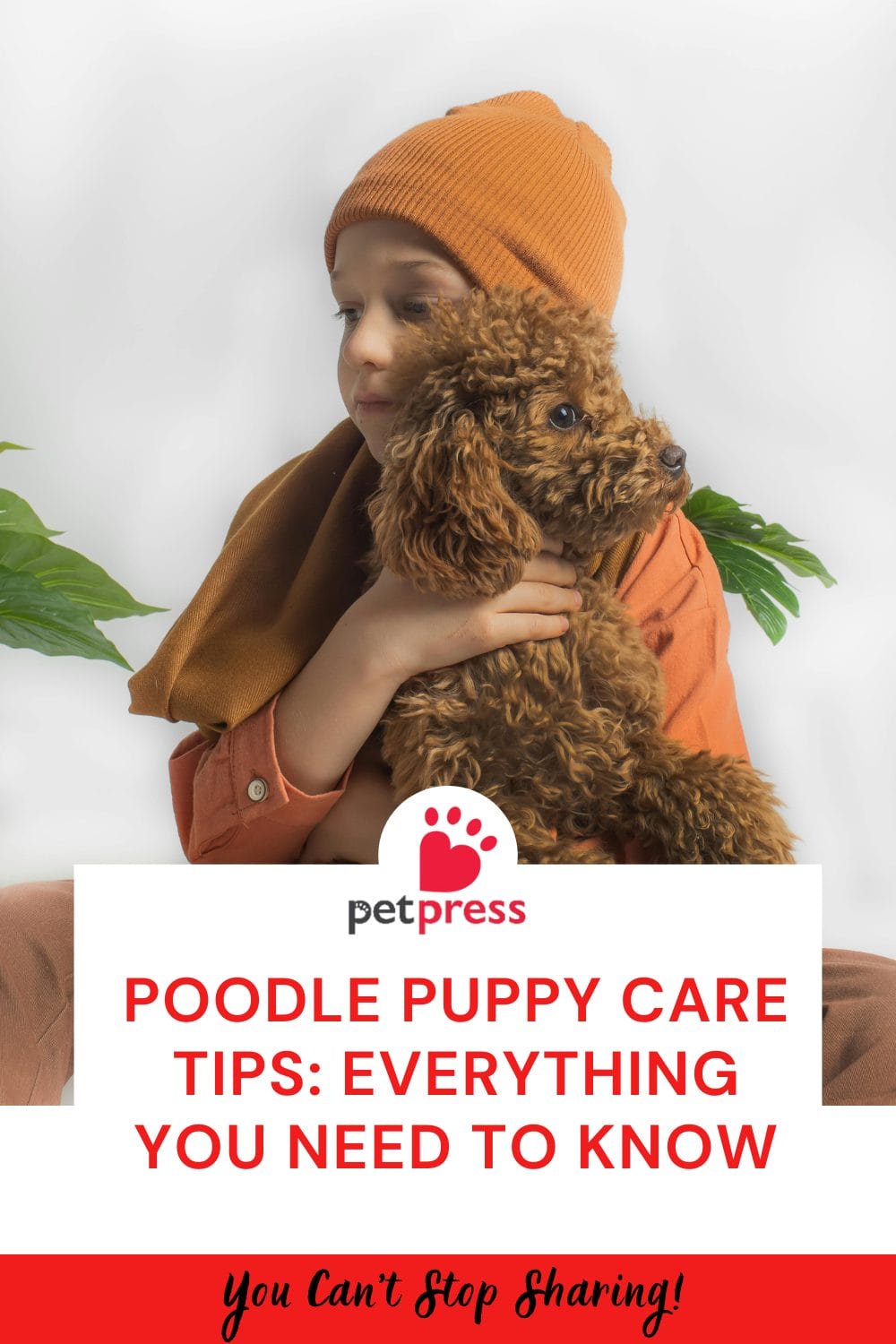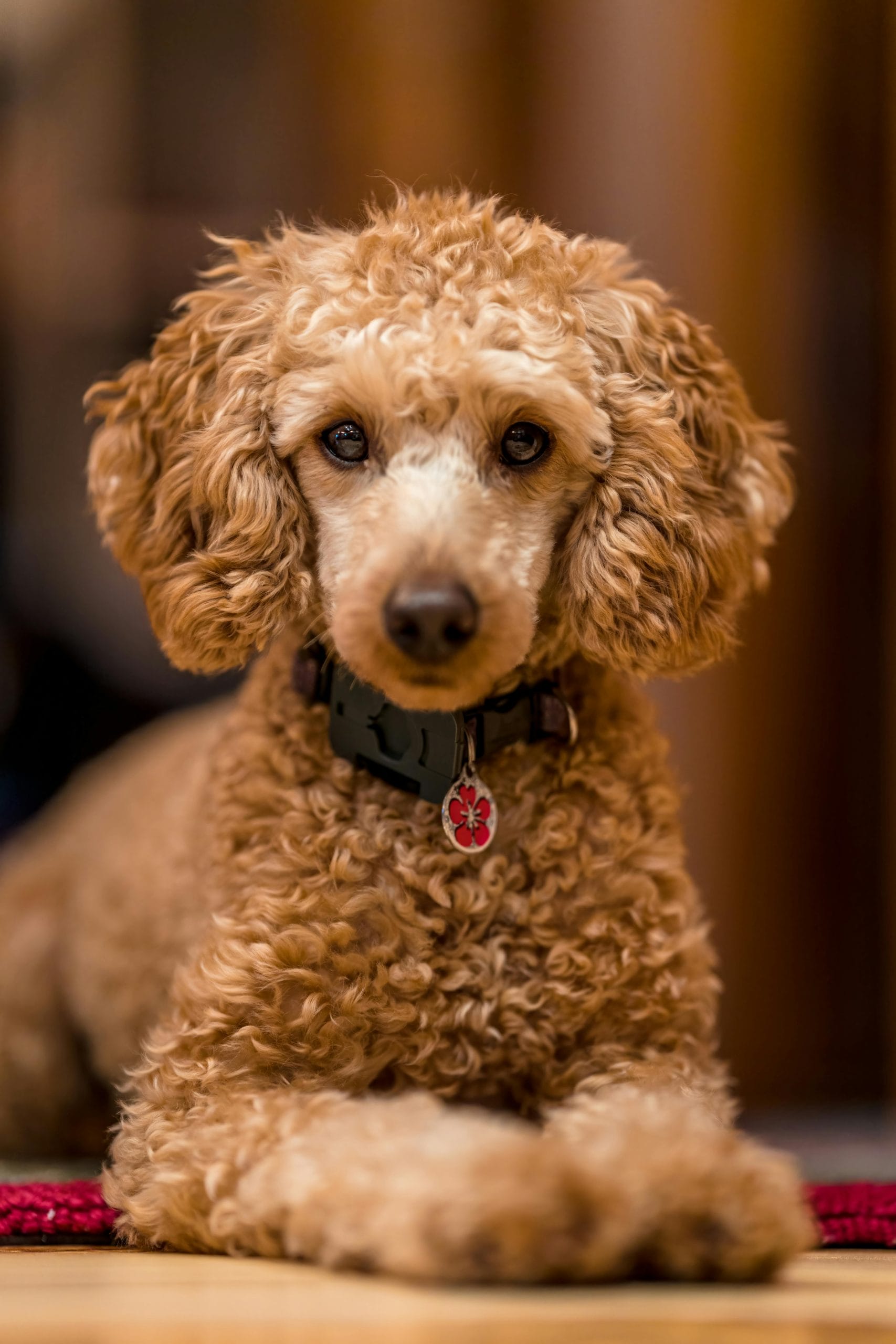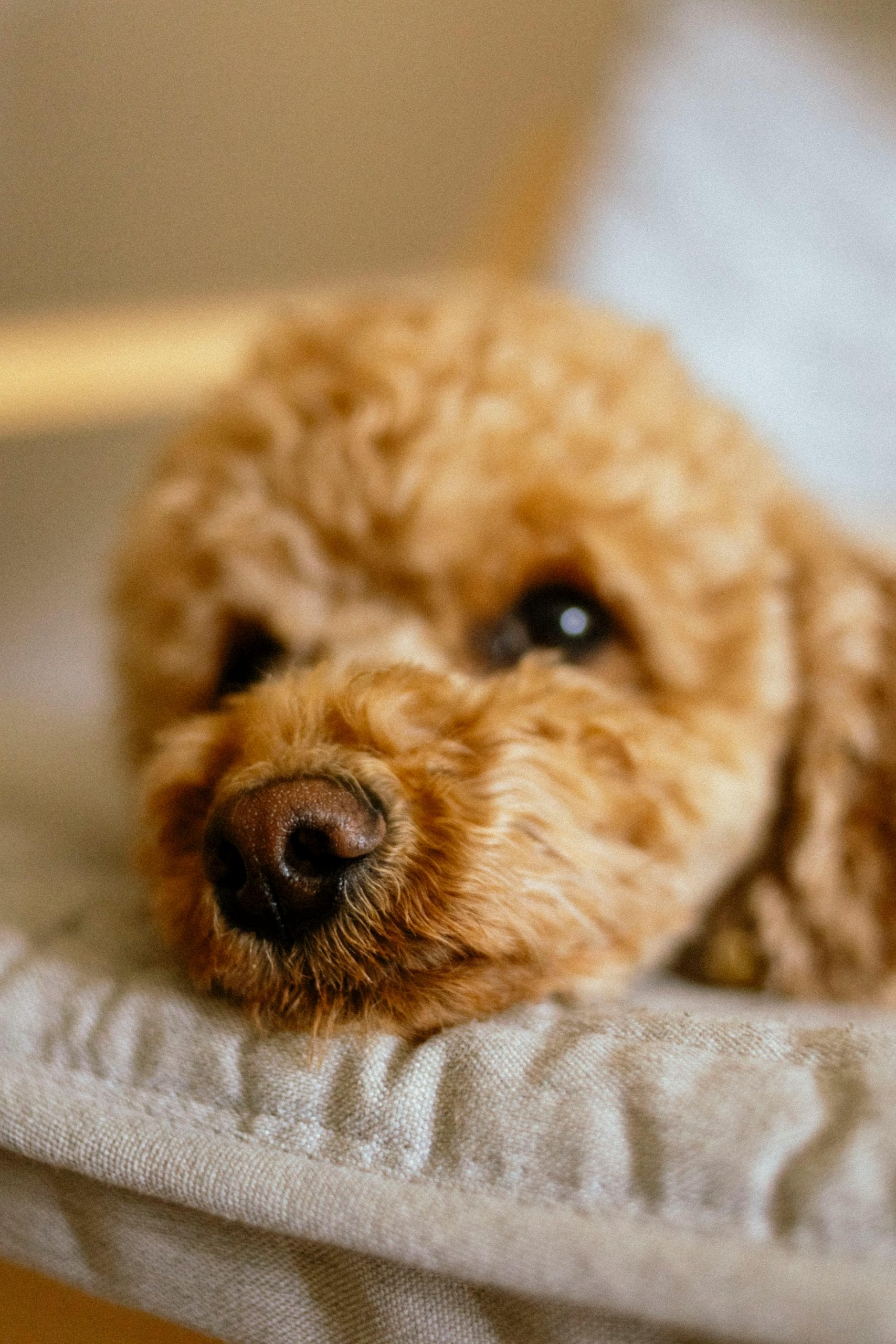
When some people think of Poodle Puppy Care Tips, they imagine fancy dogs strutting in shows. Some poodles are great at these shows, but they’re not just pretty pets.
Originally, poodles were trained to fetch ducks from water.
Even today, poodles kept as pets still have the cleverness and energy needed for this job.
If you’re thinking about getting a poodle or want to improve your relationship with one you already have, here’s some helpful info.
Poodles were originally bred for duck hunting, so they really like swimming.
They have curly fur that’s good in water. We’re not exactly sure where poodles come from, but experts think they might be a mix of a Barbet (a French water dog) and a Hungarian water hound.
Poodle puppies love playing in puddles and jumping around like they’re chasing something.
The word “poodle” comes from a German word that means splashing in water.
Basic Poodle Facts

The American Kennel Club recognizes three sizes of poodles: standard, miniature, and toy.
Some organizations in other parts of the world also acknowledge a fourth size called the “medium poodle,” which falls between a standard and miniature.
A male standard poodle typically weighs between 60-70 pounds, while females are usually in the range of 40-50 pounds.
Miniature poodles weigh around 10-15 pounds on average, while toy poodles range from 4-6 pounds.
The average lifespan for all poodles, according to the AKC, is between 10 to 18 years. Due to their curly coats, poodles require regular grooming.
If you prefer longer hair, daily brushing is recommended, while regular trimming is necessary to maintain a shorter coat.
Poodle Puppy Care Tips History
The poodle’s origins trace back to Germany, where they were skilled waterfowl retrievers for centuries.
Their intelligence, excellent swimming skills, and gentle mouths made them perfect for this job.
Poodles also gained fame as performers in European circuses, leading to the development of miniature poodles for easier transport.
Poodles have long been favored by the elite, and by the 18th century, they were often seen in the company of European nobility, particularly in France.
Eventually, poodles became the national dog of France, solidifying their prestigious status in the country.
Top 5 Poodle Puppy Care Tips

Here are the summarized care tips for Poodle puppies:
Scheduled Feedings
Start with free feeding until 3 months old, then switch to 3 meals a day plus healthy snack.
Choose high-quality food to support rapid growth.
Reserve treats for training rewards to aid in housebreaking and command training.
House Training
One of the best tips to care for your dog is to begin house training immediately and commit to the process for 2 to 3 months.
Focus on either indoor or outdoor training to avoid confusion. Consistency is key to success.
Exercise Routine
Wait until your puppy has all their shots before starting daily exercise.
Avoid over-exertion, especially in young puppies, to prevent interference with growth plate development.
Aim for 20 to 30-minute walks daily for physical activity, socialization, and proper heeling.
Poodles enjoy activities like running, jumping, and agility training, which contribute to their overall health and well-being
Establish a Grooming Routine
Introduce grooming tasks like brushing and teeth cleaning early on.
Regular grooming helps puppies get used to being handled and cared for, making it easier as they grow.
Pay special attention to dental hygiene during the puppy stage to ensure healthy adult teeth.
Create a Stress-Free Environment
Provide a loving and calm atmosphere at home.
Puppies are sensitive to their owner’s moods and the overall environment.
Avoid chaotic or noisy surroundings, as these can cause stress for your puppy.
Focus on creating a peaceful environment where your puppy can thrive and feel safe.
Food and Nutrition for Poodle Puppy Care Tips

Here are some key points to consider when feeding your Poodle:
Nutritious Diet
Like any other dog, Poodles require a balanced and complete diet that provides sufficient energy for their daily activities while helping them maintain a healthy weight.
Opt for digestible, high-quality food that meets their nutritional needs.
Joint Health Support
Incorporating Omega-3 fatty acids into their diet can help support joint health and prevent issues.
Pre-portioned meal plans make it easy to ensure they’re getting the right number of calories each day, contributing to maintaining a healthy weight, which is crucial for joint health and overall well-being.
Dental Health
A fresh, whole-food diet promotes better overall health, including dental health.
Unlike crunchy kibble, which may not effectively clean teeth and can contain substances that contribute to inflammation, fresh food can help maintain a healthier immune system and reduce the risk of dental problems.
Digestive Health
Fresh, lightly cooked food is often more digestible than processed kibble, promoting a healthy gut and digestion.
This can lead to better overall health and result in smaller, healthier stools.
By prioritizing a nutritious diet, supporting joint health, maintaining dental health, and promoting good digestion, you can help ensure your Poodle stays healthy and happy for years to come.
Frequently Asked Questions
Here is the list of the frequently asked questions related to the Poodle Puppy Care Tips.
Poodle puppies thrive on high-quality puppy food formulated for their specific nutritional needs. Consult with your veterinarian to determine the best diet plan tailored to your puppy’s age, size, and health requirements.
Regular grooming is essential for poodle puppies to maintain their curly coats. Aim for grooming sessions at least every 4-6 weeks, including brushing, bathing, and trimming as needed. Daily brushing helps prevent matting and keeps their coat in top condition.
Poodles are highly intelligent and trainable, making them responsive to positive reinforcement methods such as clicker training and reward-based techniques. Consistency, patience, and early socialization are key to shaping a well-behaved poodle puppy.
Poodle puppies have moderate exercise needs and benefit from daily walks, playtime, and interactive activities to stimulate their minds and bodies. Tailor exercise routines based on your puppy’s age, size, and energy levels, ensuring not to overexert them, especially during growth stages.
Stay up-to-date with your poodle puppy’s vaccinations, deworming, and regular veterinary check-ups to prevent common health issues. Maintain good dental hygiene, proper nutrition, and provide flea and tick prevention as recommended by your veterinarian.
- Dogs Pooping Blood: A 2026 Guide for Concerned Pet Parents - February 23, 2026
- How to Celebrate a Dog’s First Birthday on a Budget: 2026 Guide - February 18, 2026
- Best Shampoo for Sensitive Skin Dog Grooming: 2026 Guide - February 12, 2026


GIPHY App Key not set. Please check settings